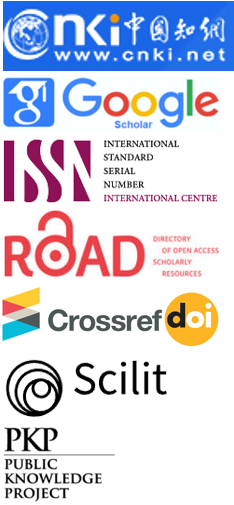Strategic Management Practices in Chinese Enterprises Under the Influence of Artificial Intelligence
DOI:
https://doi.org/10.71204/60hzjd83Keywords:
Artificial Intelligence, Strategic Management, Chinese Enterprises, AI Adoption, Digital Transformation, Strategy Framework, SWOT, PESTLEAbstract
Artificial Intelligence (AI) is reshaping strategic management in Chinese enterprises, offering powerful tools for data-driven decision-making and competitive advantage in a dynamic business environment. This study examines how AI adoption influences strategic management practices in China. Background: Chinese firms are integrating AI across strategy formulation and execution amidst strong state support and a booming AI industry. However, traditional strategic methods reliant on managerial intuition and static analysis face limitations handling big data and rapid market changes. We adopt a conceptual analysis of recent literature and industry reports (2019-2024) to outline frameworks, comparative approaches, and case insights on AI-driven strategy. Findings indicate that AI-enhanced practices improve market forecasting, real-time environmental scanning, and operational efficiency. Chinese enterprises lead in AI adoption e.g. 83% of surveyed Chinese firms report using generative AI vs 65% in the US leveraging AI for automation, customer analytics, and innovation. We propose a conceptual model of AI-integrated strategic management linking AI capabilities with enhanced agility and competitiveness. Comparative analysis shows AI-augmented approaches enable faster decisions and personalized strategies relative to traditional methods. Nonetheless, challenges arise in workforce adaptation, data governance, and alignment with strategic goals. AI is a catalyst for strategic transformation in China, elevating analytical rigor and responsiveness of enterprises. To realize its full potential, firms must develop AI maturity, address ethical and talent gaps, and align AI initiatives with long-term strategy. This work contributes a structured overview of AI strategic impacts, offering frameworks (PESTLE, SWOT) and guidance for Chinese enterprises and policymakers to harness AI for sustainable competitive advantage.
References
Allen, G. C. (2019). Understanding China’s AI Strategy: Clues to Chinese Strategic Thinking on Artificial Intelligence and National Security. Washington, DC: Center for a New American Security (CNAS).
Balasubramanian, N., Ye, Y., & Xu, M. (2022). Substituting human decision-making with machine learning: Implications for organizational learning. Academy of Management Review, 47(3), 448–465.
Baptista, E. (2024, July 9). China leads the world in adoption of generative AI, survey shows. Reuters. Retrieved from https://www.reuters.com/technology/artificial-intelligence/china-leads-world-adoption-generative-ai-survey-shows-2024-07-09/
Chen, M., & Du, W. (2024). Dynamic relationship network and international management of enterprise supply chain by particle swarm optimization algorithm under deep learning. Expert Systems, 41(5), e13081.
Hallioui, A., Herrou, B., Santos, R. S., Katina, P. F., & Egbue, O. (2022). Systems-based approach to contemporary business management: An enabler of business sustainability in the context of Industry 4.0, circular economy, competitiveness and diverse stakeholders. Journal of Cleaner Production, 373, 133819.
Huo, D., & Chaudhry, H. R. (2021). Using machine learning for evaluating global expansion location decisions: An analysis of the Chinese manufacturing sector. Technological Forecasting and Social Change, 163, 120436.
Kitsios, F., & Kamariotou, M. (2021). Artificial intelligence and business strategy towards digital transformation: A research agenda. Sustainability, 13(4), 2025.
Laguir, I., Gupta, S., Bose, I., Stekelorum, R., & Laguir, L. (2022). Analytics capabilities and organizational competitiveness: Unveiling the impact of management control systems and environmental uncertainty. Decision Support Systems, 156, 113744.
Li, S., Zhang, J., & Hasan, I. (2024). Impact of AI adoption on ESG performance: Evidence from Chinese firms. Energy & Environment, 35(5), 463–487.
Nagy, M., Lăzăroiu, G., & Valaskova, K. (2023). Machine intelligence and autonomous robotic technologies in SMEs: Deep learning and simulation algorithms, cyber-physical networks, and Industry 4.0 manufacturing. Applied Sciences, 13(3), 1681.
Rajagopal, N. K., et al. (2022). Future of business culture: An artificial intelligence-driven digital framework for organizational decision-making process. Complexity, 2022(1), 7796507.
Rana, N. P., Chatterjee, S., Dwivedi, Y. K., & Akter, S. (2022). Understanding the dark side of artificial intelligence (AI) integrated business analytics: Assessing firm’s operational inefficiency and competitiveness. European Journal of Information Systems, 31(3), 364–387.
Schmitt, M. (2023). Deep learning in business analytics: A clash of expectations and reality. International Journal of Information Management Data Insights, 3(1), 100146.
Sun, N. (2024). Workplace AI in China (Research Paper). London: Chatham House. Retrieved from https://www.chathamhouse.org (accessed July 2024).
Tang, M., & Liao, H. (2021). From conventional group decision making to large-scale group decision making: Challenges and how to meet them in the big data era – A state-of-the-art survey. Omega, 100, 102141.
Tuboalabo, A., Buinwi, J. A., Buinwi, U., Okatta, C. G., & Johnson, E. (2024). Leveraging business analytics for competitive advantage: Predictive models and data-driven decision making. International Journal of Management and Entrepreneurship Research, 6(6), 1997–2014.
Wong, L. W., Tan, G. W. H., Ooi, K. B., Lin, B., & Dwivedi, Y. K. (2024). Artificial intelligence-driven risk management for enhancing supply chain agility: A deep-learning-based dual-stage PLS-SEM-ANN analysis. International Journal of Production Research, 62(15), 5535–5555.
Yan, X. (2024, June 20). Scale of China’s AI industry over 578b yuan in 2023: report. China Daily. Retrieved from https://www.chinadaily.com.cn/business/tech (accessed July 2024).
Yang, P., Li, H., Hou, W., & Pan, X. (2025). The analysis of strategic management decisions and corporate competitiveness based on artificial intelligence. Scientific Reports, 15(1), 17942.
Zeng, J. (2022). Artificial intelligence with Chinese characteristics: National strategy, security and authoritarian governance. Journal of Contemporary China, 31(136), 351–365.
Zhao, Y., et al. (2022). Development and innovation of enterprise knowledge management strategies using big data and neural network technology. Journal of Innovation & Knowledge, 7(4), 100273.
Downloads
Published
Issue
Section
Categories
License
Copyright (c) 2025 Kai Li (Author)

This work is licensed under a Creative Commons Attribution 4.0 International License.
All articles published in this journal are licensed under the Creative Commons Attribution 4.0 International License (CC BY 4.0). This license permits unrestricted use, distribution, and reproduction in any medium, provided the original author(s) and source are properly credited. Authors retain copyright of their work, and readers are free to copy, share, adapt, and build upon the material for any purpose, including commercial use, as long as appropriate attribution is given.





